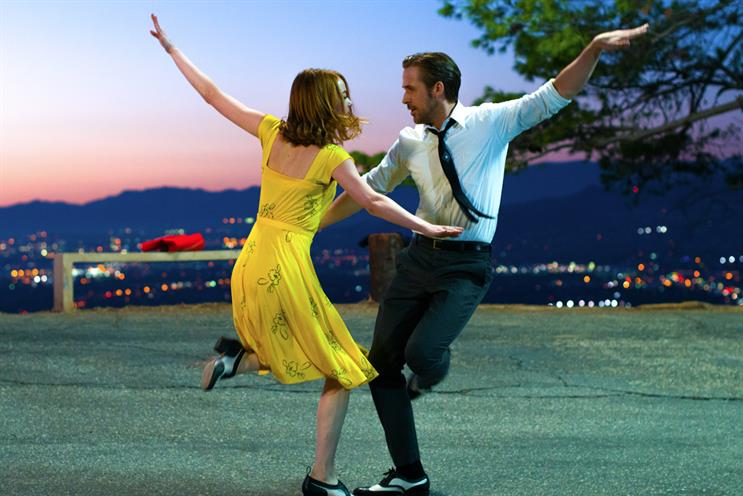The odds on La La Land sweeping the board at the Oscars in a couple of weeks’ time can’t be too good. While it’s certainly not the best film ever made, 32-year-old Damien Chazelle’s movie is an old-fashioned and familiar story (with a modern twist) that’s told beautifully and, crucially, feels completely in context with the moment.
La La Land seems like a perfectly pitched film at a time when many of us feel overwhelmed by the real world and politically, well, Trumped.
There’s something else going on too, though – the plethora of stuff we’re exposed to every day of our lives is in danger of making us feel discontented.
So-called "content" is bombarding us every minute and on every platform. We’re targeted, stalked and harassed, and the advertising industry is largely to blame – blasting it out in the vain hope that something will eventually stick.
The "content" bandwagon has not just been jumped on, it has been hijacked and is veering dangerously and wildly out of control.
There are lessons we can learn from La La Land that can also be seen in the recent results for Netflix. The streaming service has just announced a record final quarter for 2016 (so the year wasn’t bad for everyone), with an additional seven million subscribers edging it ever-closer to 100 million customers worldwide.
Much of this growth can be attributed to the brilliant drama series The Crown. Once again, it showed the power of an incredibly familiar story told well, with Peter Morgan’s peerless knack of nailing context while doing history.
Old stories are often the best; we just need to look for new ways to tell them. How else to explain the success of one of the oldest radio formats in the world, Desert Islands Discs, for which Radio 4 has just begun a year-long celebration to mark its 75th anniversary?
It seems the BBC Radio 4 audiences love Desert Island Discs now more than ever – it is somehow simultaneously the most old-fashioned and modern format around (and, in a further gentle nod to modernity, presumably David Beckham was chosen as a birthday guest because he actually has his own island already).
Old stories are often the best. We just need to look for new ways to tell them.
Equally reassuring is the inherent familiarity of one of today’s biggest YouTube phenomena – The Chicken Connoisseur. With more than 500,000 subscribers and millions of views per episode, Elijah Quashie’s The Pengest Munch is a good old-fashioned scathing restaurant review.
It’s the nasty one on MasterChef, or Jay Rayner in The Observer, for the burger-sauce generation. The idea isn’t new but the way it’s told is. I’m not sure where we are in the trend cycle of talking about good advertising as storytelling – it was de rigueur a few years ago.
But it certainly stuck in my craw when traditional advertising creatives started talking about the narrative arc in direct mail flyers to sell cruises to retirees; its real meaning had become meaningless. But what all of the above "broadcast" hits prove to me is that great ideas, solid storytelling with an acute sense of context are at the heart of successful and engaging entertainment.
And that’s why I think I feel exhausted and exasperated by so much of what has masqueraded as "content" over the past year or so. Endless fragments of disjointed "entertainment", delivered programmatically or otherwise, with no sense of macro or personal context can suck the life out of you and turn you against those who deliver them.
It would be simplistic and naïve to ignore the role and power of snackable short-form bites with brand values proudly on view. But with chaos and uncertainty around us, there’s a natural migration towards familiar and reassuring stories told in modern ways.
And rather than the bleak outlook of the daily news, this offers great opportunities for content producers and marketers alike.
Jez Nelson is chief executive and chief creative officer at Somethin' Else.


